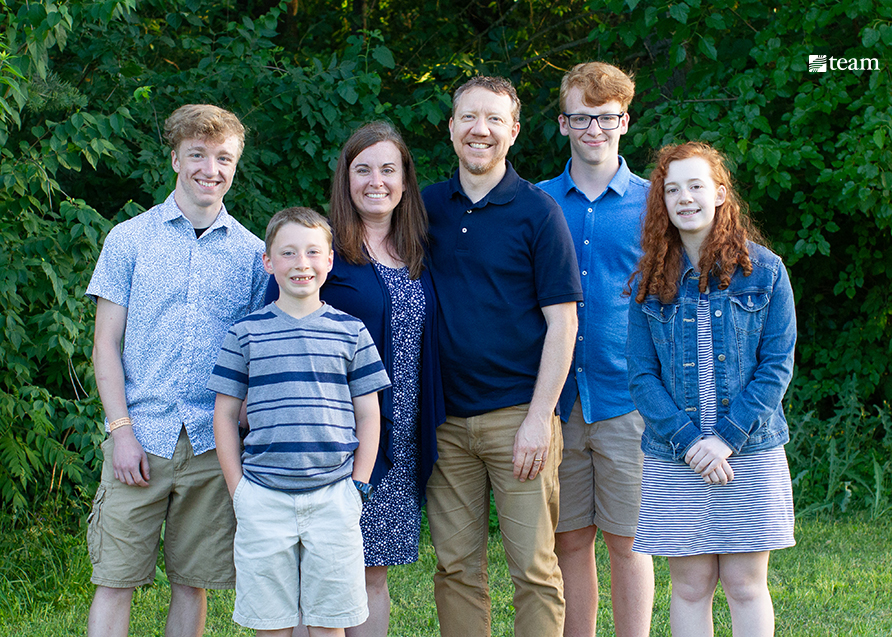
Becoming a Missionary
When Becoming a Missionary Means Keeping Your Job
April 28, 2016
by admin

Everyone knows what becoming a missionary means: Quit the job you enjoy, attend a fancy seminary, get fitted for one of those safari hats and start looking for random strangers to proselytize.
OK, maybe not the hat, but the rest tend to be considered non-negotiable. Unless you’re a doctor, a teacher or capable of starting a whole business (as mission), giving up your career and learning cold evangelism are seen as part of the “dying to self” all missionaries go through. But what if, in a growing global economy, building your career was one of the most effective ways to build the kingdom of God overseas?
While TEAM obviously still believes in the traditional missionary model, it’s undeniable that God is also opening doors for people to take professional jobs in foreign countries. These people are called “kingdom professionals,” and here are a few purposes we think God may have for the movement:
1. Every country needs IT managers (and designers, chefs and psychologists).
The world is an ever-changing list of countries that don’t allow missionaries among their people. Review mission history, and you’ll easily find people who had to minister just outside the country they truly felt called to, or who had to leave after a political upset. No matter their political leanings, however, most nations still need accountants, engineers and marketers.
Make no mistake, we’re not talking about just taking a job as a cover. As you do your job well, your host country will see the value of keeping you around, even if you discuss theology with your cube-mates.
2. Professional jobs come with co-workers who need Jesus.
A traditional missionary’s first task is to find a way to build relationships, and finding ways to relate to well-paid professionals (who don’t need free health clinics or other social services) can be tough. Finding ways to relate to your co-workers, however, often happens naturally.
As you bond over break room coffee, tough projects and pictures of each other’s kids, you’ll find ways to share the gospel just like you would in your home country. The difference is, now you’re reaching people who may never have heard Christ’s name before.
3. People who get regular paychecks don’t raise support.
Ideally, the church could and would financially support the large amount of missionaries needed to reach the 2 billion people in this world who have no knowledge of Jesus Christ.
Until we reach that ideal, taking paid positions is a practical solution for a big financial obstacle, closely mirroring the Apostle Paul’s tent making strategy. And with the financial burden lifted, churches should feel even more freedom to provide spiritual, emotional and strategic support to fellow Christians working abroad.
4. God gives us skills and talents for His glory.
When it was time to build the tabernacle, God called Bezalel and Oholiab by name to create beautiful embroidery and carvings. It wasn’t just that God found the two most talented people in Israel, though. Exodus 35:30-35 says God filled them with the skills and intelligence needed for the job.
Their trades weren’t the things they needed to sacrifice before they could really serve God; they were the exact tools needed to serve God according to His will. As Christians spread across the global economy, using their skills in the name of the Lord Jesus (Col. 3:17), we believe God will be glorified, especially as more people come to know Him.
Next steps for the Kingdom Professional
Of course, being effective as a kingdom professional isn’t as simple as finding a job in a foreign country (a challenge in itself), but as the trend grows, so are the resources for it.
You can get started by checking out communities like Scatter Global that help Christian professionals find jobs – and each other – around the world. Attend “kingdom professionals” conferences when they come to your area. If God leads you to a foreign post, ask ministries like TEAM to get you in touch with missionaries in your host country so you can partner with them. And throughout the journey, make sure to seek your church’s prayerful, strategic and emotional support.
We aren’t all called to be evangelists, but we are all called to spread the gospel — to the darkest jungles and to the farthest water cooler.
Related articles

